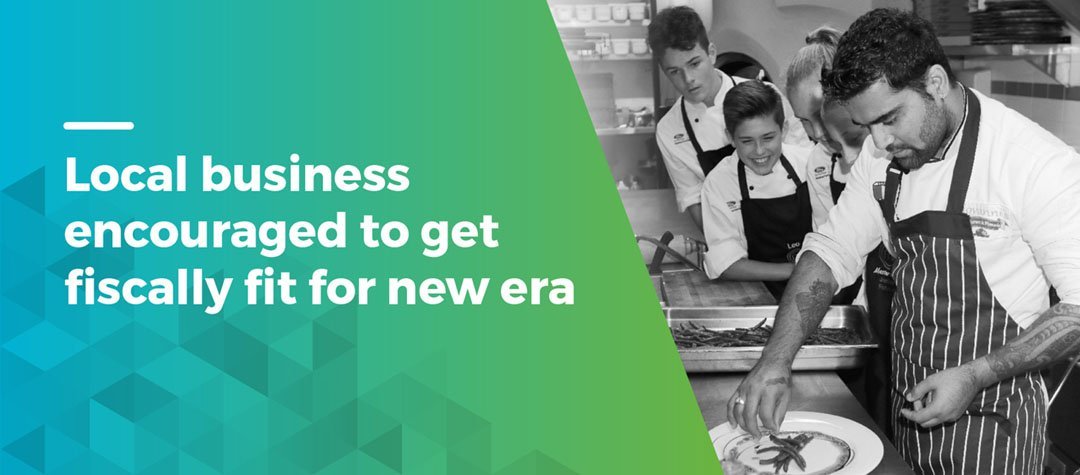
PRESS RELEASE: Rotorua, 5th December 2019
This article was originally published in the Rotorua Daily Times
With continued global disruption and rapidly changing consumer behaviours, one local accountant is encouraging Rotorua businesses to shift the focus from responding to unprecedented times and prepare for an unpredictable year ahead.
“If there is one thing 2020 has taught us, it is to be ready for the unknown and prepare to adapt quickly. Combining this experience with the basic principles of ensuring your company is financially fit for the future will enable companies to navigate the new norm.” says Money Metrics Rotorua owner Kelly Lelieveld.
The qualified Chartered Accountant has seen a noticeable change in the mindset of business owners. With many venturing into business for the first time, people are more aware of the need to access cash reserves on a rainy day.
“In the last eight months, clients that had strong working capital who were focused on reducing unnecessary costs, experienced less stress and more positive financial outcomes than others who didn’t” says Lelieveld.
“When a company has working capital it means they are in a position to pay their current liabilities with current assets. It is a good sign of short-term financial health and during Covid it has meant those in a strong position have been able to look after staff, pivot their business model and in some cases even grow.
“Preparing a careful forecast, following a budget and being mindful of where their money goes will help business owners make intelligent decisions. They will have a better chance of responding to abrupt changes and have the ability capitalise on new opportunities”.
While Europe and America continue to experience a surge in new cases, and any immediate access to widespread vaccinations is unlikely, now is the time to stay alert advises Lelieveld, who expects volatility and uncertainty to continue for the foreseeable future.
She highlights that no one was able to accurately predict how 2020 would pan out and what eventuated was unexpected for many. “Aside from the government subsidy, the drive to support locals and an extraordinary domestic tourism market became a vital safety net for some clients and a great opportunity for others” she says. “It has given them time to adapt and refocus on what they need to do to prepare the future”.
One success story during the pandemic has been Money Metrics customer Deep Kumar, owner of Giovanni’s Italian Restaurant and Pizzeria at Lynmore Junction.
“Nothing about our business has been the same but at Giovanni’s we were lucky” says Kumar. “We had always based our business formula on having a good location and establishing a strong connection with our local community so we weren’t reliant on tourists. When we emerged from lockdown, the support from locals was instrumental in helping us get through and we cannot thank them enough.”

But that support wasn’t going to be enough to prevent redundancies among his valued Giovanni’s staff, some of them family. In an industry being heavily affected by Covid, the young entrepreneur was already in the process of opening a new restaurant in Christchurch, but set out to explore other opportunities to retain his team in Rotorua.
The prospect to buy Mamma Rosa Pizzeria on Pukaki Street arose when the prior owners put it on the market after lockdown. Believing it was the right time to invest, and with sound financial planning behind him, he purchased the restaurant.
While turnover appears more seasonally affected, Kumar says “when it’s busy, it’s amazingly busy”. In August, Giovanni’s revenue was up 20% on last year and he is expecting this summer to be his best on record.
Both Kumar and Lelieveld believe one of the biggest challenges yet to be fully understood is the transformation in human behaviour; how it will change consumer activity, how technology will continue to adapt and how businesses will need to respond. Fundamental lifestyle changes – the ways in which we work, interact, travel and shop, could be profound and long lasting.
Before the pandemic, the accounting industry was already undergoing a revolution. Transformation was rapid and some future analysts were debating whether digitalisation and automation would reduce the need for accountants. Kelly Lelieveld believes that Covid has well and truly put that burning question to bed, as good relationships between companies and their accountants have become more important than ever.
“There aren’t many industries that will yet have a complete picture of how their future is shaping up,” says Lelieveld. “As a chartered accountant we are just as exposed to the challenge. But while we can’t predict the outcome we can put businesses in the best possible financial position to navigate it.”
